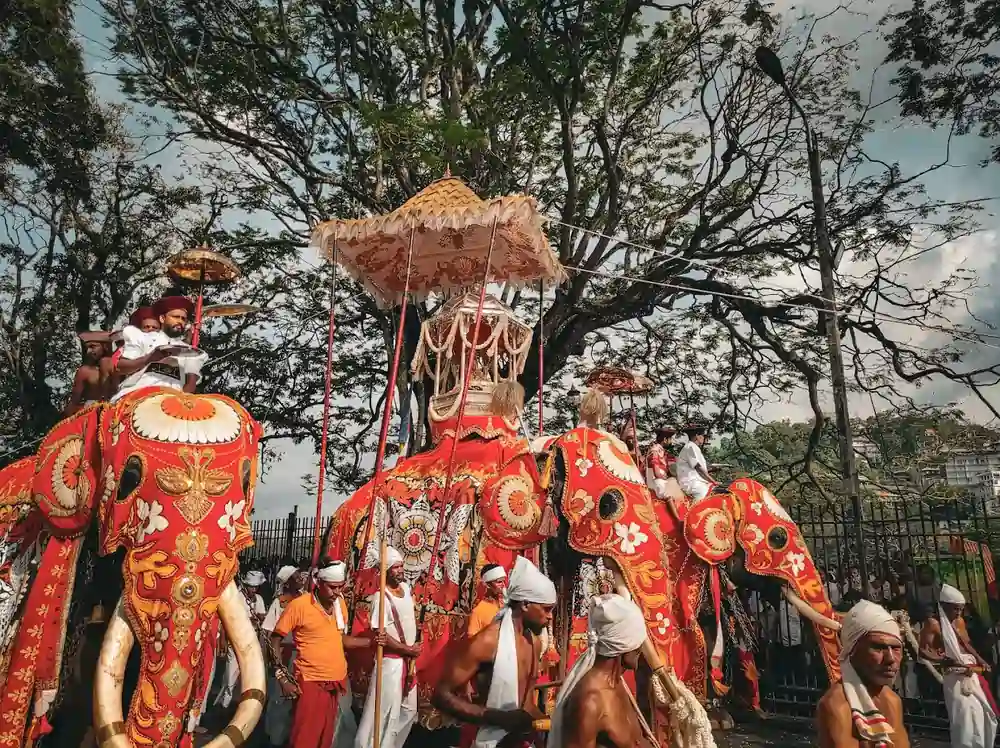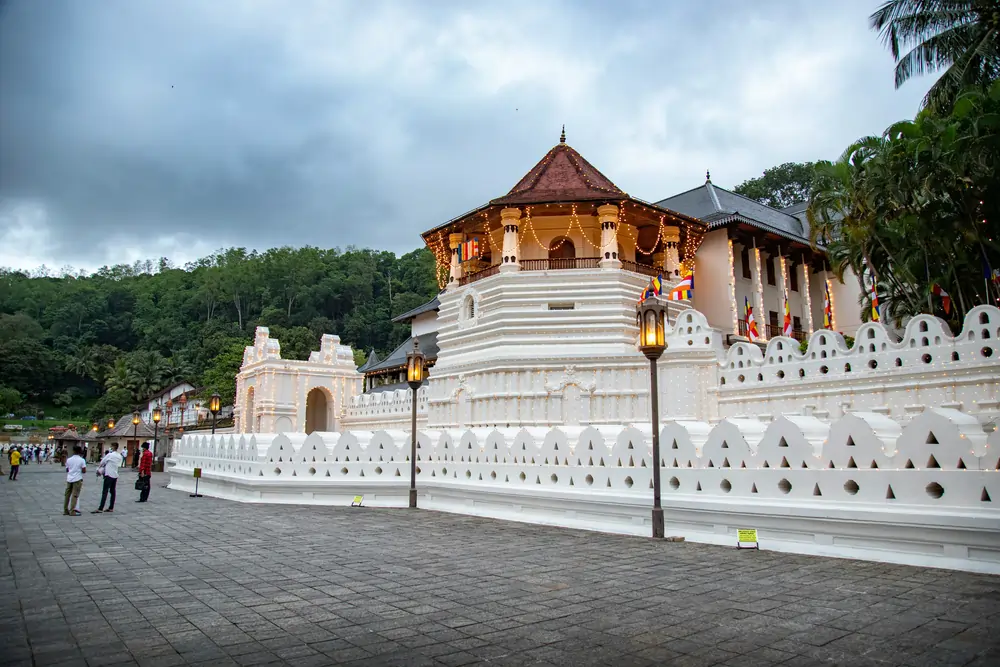
Why a Holiday in Sri Lanka is the Ultimate Festive Getaway?
Sri Lanka’s festivals are celebrations of life, colour, food, music, and devotion. The island’s cultural diversity, influenced by its Buddhist, Hindu, Muslim, and Christian communities, brings about a unique festive calendar that promises something for everyone during the holiday in Sri Lanka.
From the tropical beaches of the south to the ancient temples of the north, Sri Lanka’s festivals are as diverse as the landscapes that frame them. Whether you’re a history buff, a culture enthusiast, or simply someone who loves to party, these festivals are the perfect way to dive into the island’s vibrant spirit. So, if you’re looking to add a bit of sparkle and joy to your travel experience, a festive holiday in Sri Lanka should definitely be on your bucket list.
A Glimpse of Sri Lanka’s Rich Cultural Heritage
Sri Lanka’s history and culture are as rich and vibrant as its festivals. The island’s cultural tapestry is woven with threads from Buddhism, Hinduism, Islam, and Christianity, each contributing unique flavours to the country’s celebrations. Sri Lanka’s festivals are not just about fun and games; they reflect centuries-old traditions, rituals, and customs that have been passed down through generations.
The island’s festivals, deeply rooted in its religion and cultural heritage, are an immersive experience that allows you to witness the very essence of local life while on a holiday in Sri Lanka. From the sacred rituals at Buddhist temples to the lively Tamil New Year celebrations, each festival provides a unique glimpse into the country’s diverse culture. With centuries of history, every festival tells a story of the island’s past, reflecting its artistic, religious, and social influences.
The Top Festivals You Can’t Miss in Sri Lanka
Sri Lanka is home to a wide array of cultural and religious festivals throughout the year, each offering a unique experience for travellers who are on a holiday in Sri Lanka. Whether you’re seeking spiritual enrichment or simply want to dive into the island’s vibrant local culture, these festivals will certainly leave you with unforgettable memories. Here’s a deeper look into five of the top festivals you can’t afford to miss on your holiday in Sri Lanka.

1. Sinhala and Tamil New Year
The Sinhala and Tamil New Year, celebrated in April, is one of Sri Lanka’s most important national holidays, marking the beginning of the new solar year. This festival is widely observed by both the Sinhalese and Tamil communities and is a time for reflection, renewal, and family bonding. One of the key traditions is the cleaning of homes, which symbolises clearing out the old to make space for new beginnings. Homes are decorated with colourful motifs, and families wear new clothes to celebrate the fresh start.
On the day of the New Year, the celebration begins with the auspicious time (Nekatha), a special moment determined by astrologers when the old year ends and the new year begins. Families gather to offer prayers, light incense, and exchange blessings. The ritual is followed by the preparation of special foods like kiribath (milk rice), which is served with lunumiris (spicy sambol), along with kevum (oil cakes) and kokis (crispy rice flour cookies). These dishes symbolise prosperity and good fortune for the year ahead.
Festivities continue with various traditional games such as tug-of-war, traditional wrestling, and pillow fights, which bring communities together in a spirit of joy and camaraderie. If you’re having your holiday in Sri Lanka during this time, the Sinhala and Tamil New Year offers a unique opportunity to experience Sri Lanka’s cultural vibrancy and festive spirit.
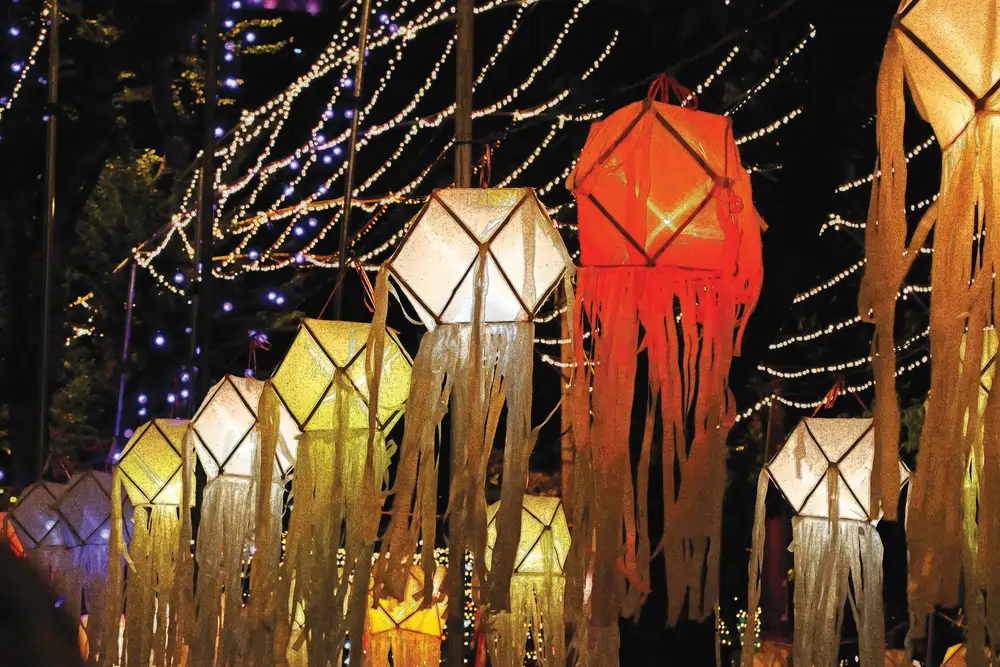
2. Vesak
Vesak is one of the most spiritual festivals in Sri Lanka, celebrated to mark the birth, enlightenment, and death of Lord Buddha. This deeply significant festival falls on the full moon of May, and during this time, Sri Lanka’s streets come alive with a sea of lights, lanterns, and colourful decorations. Vesak Poya, the full moon day, is a sacred time for Buddhists, offering an opportunity for reflection, meditation, and acts of charity.
On Vesak, devotees visit Buddhist temples to offer flowers, light oil lamps, and make offerings of food and drink as a sign of reverence. The temples are beautifully illuminated with thousands of lanterns, creating a serene and spiritual atmosphere. A unique tradition during Vesak is the Vesak Pandals, which are elaborate, brightly coloured structures that display scenes from the life of the Buddha. These displays are often set up in public spaces, and visitors can walk around to learn more about Buddhist teachings and the Buddha’s life while on a holiday in Sri Lanka.
In addition to these spiritual activities, you’ll find people engaging in dana (acts of charity), offering food and necessities to the less fortunate. Vesak is a perfect time for spiritual travellers to experience the peaceful yet deeply moving religious atmosphere that Sri Lanka offers, making it a highlight of any holiday in Sri Lanka.
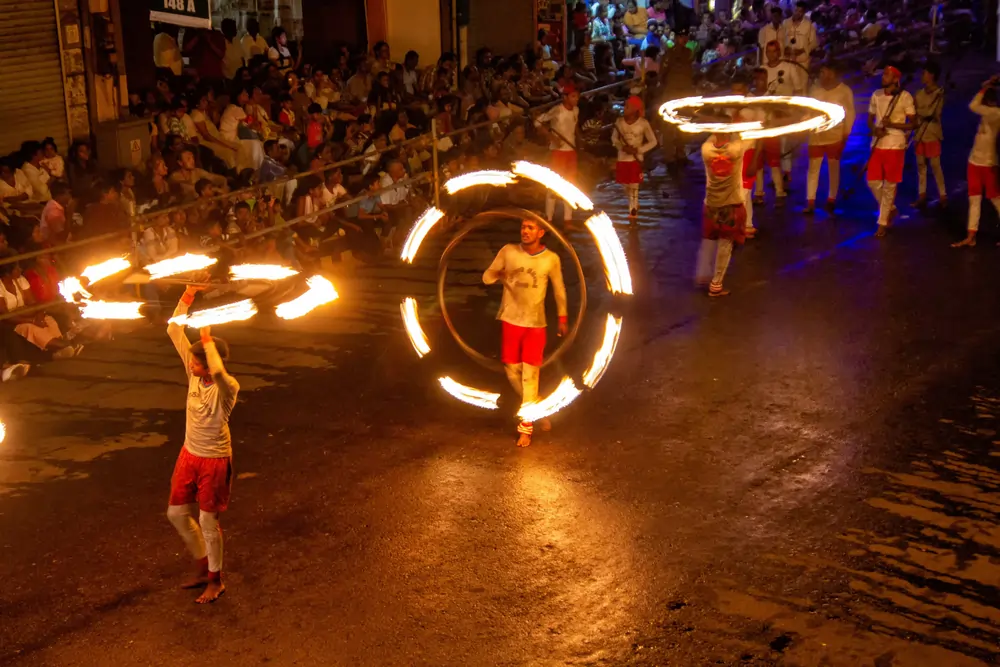
3. Kandy Esala Perahera
For those seeking a lively and visually stunning holiday in Sri Lanka, the Kandy Esala Perahera is the ultimate festival to witness. Held annually in August, this grand procession takes place in the hill capital of Kandy and is one of the most famous cultural events in Sri Lanka. The festival honours the sacred Tooth Relic of the Buddha, a revered relic believed to hold great religious significance, and is carried through the streets of Kandy in a magnificent procession.
The Esala Perahera is a spectacle that includes hundreds of traditional dancers, drummers, fire-breathers, and elaborately decorated elephants. The procession begins in the evening, with the procession of the sacred Tooth Relic accompanied by ceremonial dances like kohomba kankariya and fire dances that light up the night. Elephants, adorned in resplendent costumes, march majestically through the streets, while the crowds cheer on and make offerings along the way.
For anyone visiting Sri Lanka, the Kandy Esala Perahera is a truly unforgettable experience. The grand processions, lively music, and majestic elephants create an atmosphere that is both magical and deeply spiritual, making it an absolute must-see during your holiday in Sri Lanka.
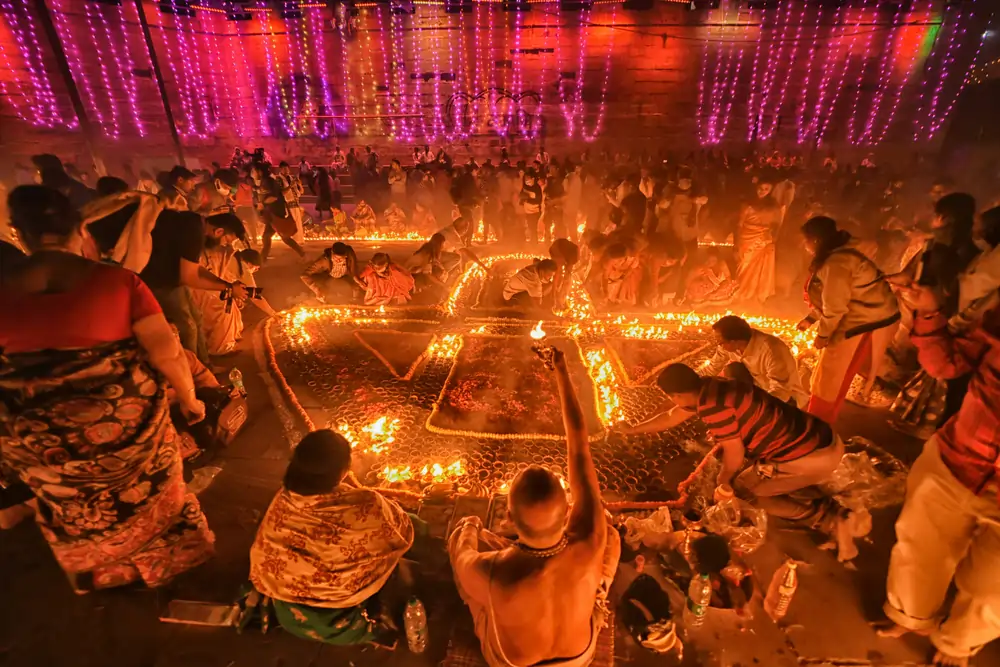
4. Deepavali (Diwali)
Deepavali, also known as Diwali, is the Festival of Lights celebrated by Sri Lanka’s Tamil Hindu community, usually in October or November. It is one of the most significant festivals in Hindu culture, symbolising the victory of good over evil and light over darkness. During this festival, homes and temples are adorned with diyas (oil lamps), which are believed to bring light and prosperity into the home. People also decorate their houses with colourful rangoli designs and vibrant streamers.
The celebration involves lighting fireworks, which fill the night sky with colour and sound, symbolising the destruction of evil. Deepavali is not just a time for religious rituals but also for family gatherings and joyous festivities. Families clean and decorate their homes, wear new clothes, and share delicious sweets such as laddu, barfi, and mithai (Indian sweets).
One of the most spectacular aspects of Deepavali in Sri Lanka is the vibrant street festivals, particularly in cities like Colombo, Jaffna, and Kandy, where you’ll see people lighting up the streets with their diyas and enjoying the festive atmosphere. Deepavali is a perfect blend of spiritual meaning and celebratory joy, making it a wonderful festival to experience during your holiday in Sri Lanka.
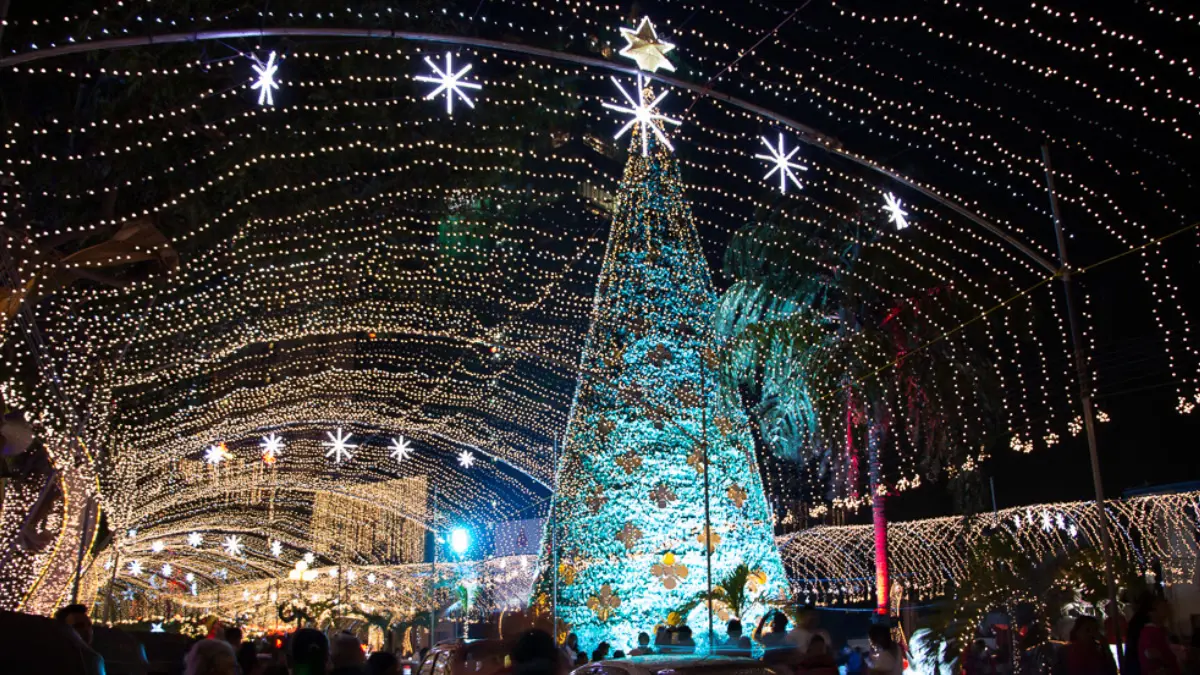
5. Christmas in Sri Lanka
Although Sri Lanka is predominantly a Buddhist country, Christmas is widely celebrated, particularly in Colombo and the western coastal regions. The Christian community in Sri Lanka observes Christmas with enthusiasm, and despite the tropical climate, the island’s Christmas celebrations are as lively as anywhere else in the world.
Families celebrate Christmas Eve with midnight mass, which is the central religious event of the holiday, followed by a Christmas feast. Hotels and restaurants across the island offer special Christmas buffets, with traditional fare like roast turkey, fruitcakes, and Sri Lankan-style pork curry. The streets, homes, and churches are decorated with colourful Christmas lights, creating a festive and tropical atmosphere.
For visitors looking for a different kind of holiday in Sri Lanka, Christmas offers a unique fusion of local Sri Lankan culture and Western traditions. While celebrating Christmas in a tropical setting may feel different, it’s certainly an experience worth having, especially if you enjoy vibrant celebrations combined with delicious food and warm hospitality.
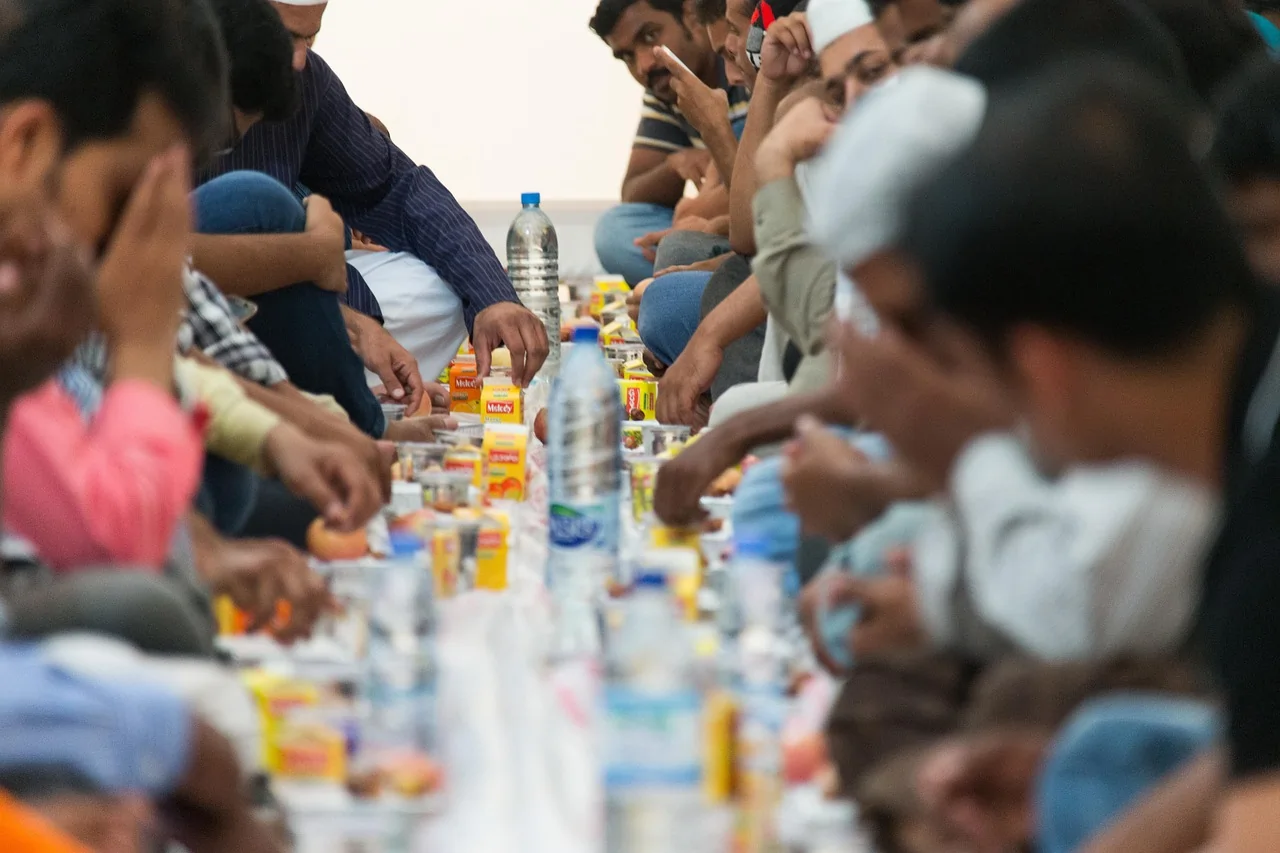
Ramadan (Eid al-Fitr)
Ramadan, observed by Muslims across Sri Lanka, is a month dedicated to fasting, prayer, and charity. Muslims fast from dawn to sunset, abstaining from food and drink to foster spiritual growth and self-discipline. The fast is broken at sunset with Iftar, which typically begins with dates and is followed by dishes like samosas, roti, and kurma (a type of curry). It’s a time for family bonding and community gatherings.
During Ramadan, Taraweeh prayers are performed at mosques in the evenings, offering both spiritual reflection and social connection. Another important tradition is Zakat, where Muslims give a portion of their income to charity, ensuring the less fortunate are supported during this sacred time.
The end of Ramadan is marked by Eid al-Fitr, a joyful celebration of family, prayer, and festive meals. On Eid, families gather for prayers at the mosque and enjoy a feast that includes dishes like biryani, haleem, and sweets such as kueh lapis and seviyan (sweet vermicelli). Eid is a time of gratitude, generosity, and celebration, making it an unforgettable experience during your holiday in Sri Lanka.
How to Plan Your Holiday Around Sri Lanka’s Festivals
Planning your holiday in Sri Lanka around one or more of its famous festivals is a great way to immerse yourself in the island’s culture. However, it’s essential to plan ahead to ensure you make the most of these celebrations.
Choosing the Right Sri Lanka Tour Package
When planning your festive holiday in Sri Lanka, it’s crucial to choose the right Sri Lanka tour package that aligns with your travel goals. Many tour operators offer packages that are specifically tailored around festival dates so that you can experience Sri Lanka’s cultural celebrations with ease. Look for packages that include guided tours of key festival events, hotel accommodations, and cultural excursions.
If you’re interested in religious or spiritual festivals like Vesak or Sinhala and Tamil New Year, choose a package that includes temple visits and insights into local rituals. For those wanting to experience the more vibrant festivals like the Kandy Esala Perahera, packages that cover accommodation near the event are ideal for a holiday in Sri Lanka.
Best Time to Visit Sri Lanka for Festivals
Sri Lanka’s festivals span across the entire year, but the best time for a holiday in Sri Lanka depends on the festivals you want to experience. The Sinhala and Tamil New Year, Vesak, and Deepavali are concentrated around the first and second quarters of the year, while the Kandy Esala Perahera takes place in August. Christmas is, of course, in December, offering a different but equally festive experience.
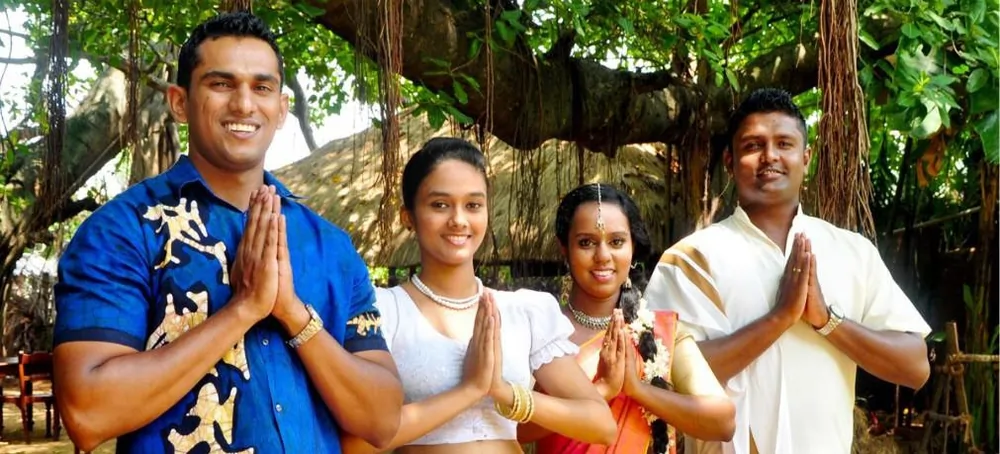
Cultural Etiquette During Sri Lanka’s Festivals
As with any travel experience, it’s important to respect local customs and traditions when participating in Sri Lanka’s festivals. Understanding the cultural etiquette will ensure that you have a more meaningful and respectful holiday in Sri Lanka.
Dress Codes and Traditions
When attending religious and cultural festivals during a holiday in Sri Lanka, it’s customary to dress modestly. For temple visits or festivals like Vesak, it’s common to wear light, respectful clothing such as long pants or skirts and sleeved tops. Bright, flashy clothing may be seen as disrespectful in certain settings, especially in religious areas.
At events like the Kandy Esala Perahera, while there is more freedom with attire, it’s still a good idea to dress neatly and modestly, avoiding overly casual or revealing clothes. If you’re planning to participate in any religious ceremonies, be sure to cover your shoulders and knees.
Festival Etiquette and Behaviours
Sri Lankans are known for their warm hospitality, and during festivals, they love sharing their joy with visitors. However, when planning a holiday in Sri Lanka, it’s important to follow the etiquette that goes along with these celebrations.
- Respect the sacred: At religious festivals, especially Vesak and Sinhala and Tamil New Year, take part in the rituals with reverence. You may be invited to join in prayers or the lighting of lamps; always do so quietly and respectfully.
- Fireworks and celebrations: During festivals like Deepavali and New Year, fireworks are common, and it’s easy to get caught up in the excitement. However, be mindful of the noise levels, especially if you’re in a more peaceful area.
- Don’t interrupt processions: During festivals like the Kandy Esala Perahera, where processions and parades are held, it’s important to stay behind the performers. Avoid disrupting the flow of the procession or disturbing the sacred relics.
By observing these small etiquettes, you’ll ensure that you’re part of the festival in a meaningful and respectful way.
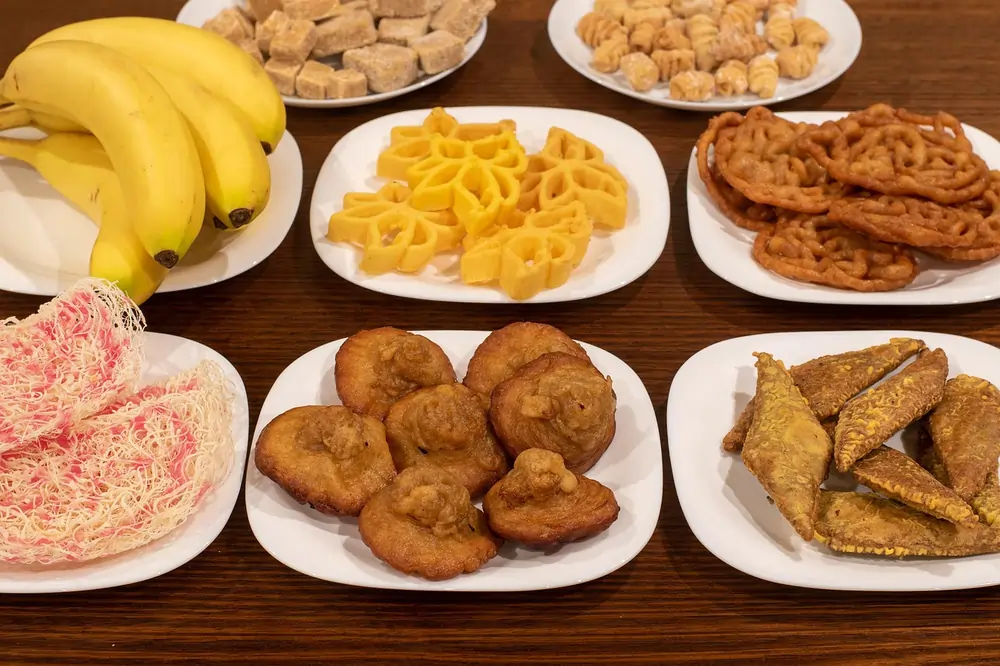
Exploring Sri Lanka’s Festive Food and Drinks
A massive part of Sri Lanka’s festivals is the food! If you’re a foodie planning a holiday in Sri Lanka, you’re in for a treat because each festival brings with it a delicious array of traditional dishes and treats. The festive food in Sri Lanka is not just about eating; it’s about sharing and bonding with family and friends.
Traditional Dishes You’ll Find During Festivals
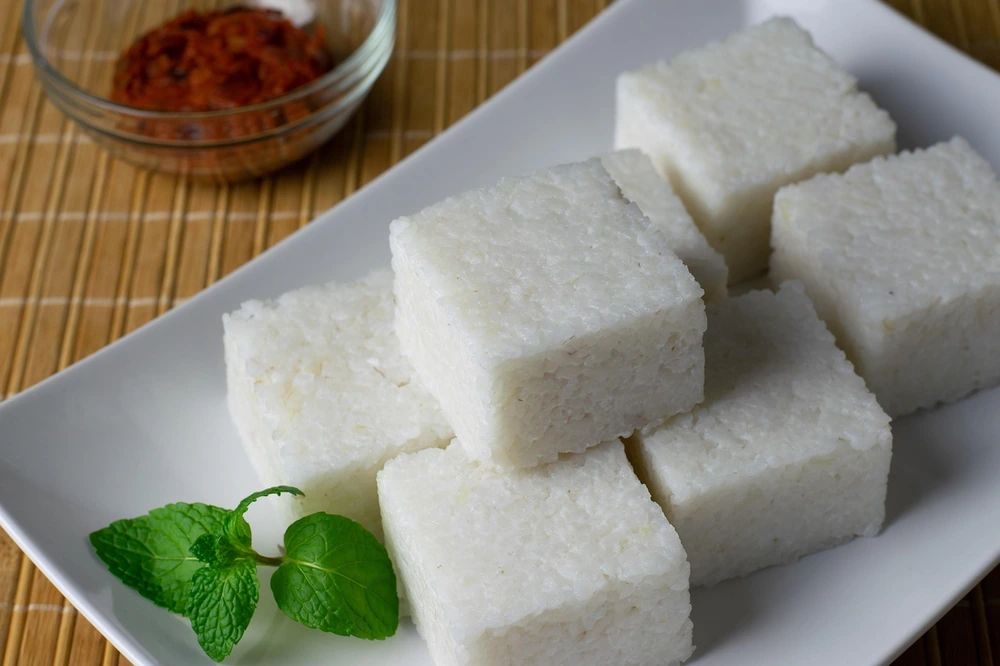
Kiribath (Milk Rice)
A must-have during the Sinhala and Tamil New Year holiday in Sri Lanka, Kiribath is made by cooking rice in coconut milk. It’s often served with a sweet and spicy sambol (chilli paste) or a rich lunu miris (spicy onion sambol). This dish is deeply embedded in Sri Lankan culture, symbolising prosperity and good fortune for the new year.
Kevum (Oil Cakes)
Kevum is another essential treat during the Sinhala and Tamil New Year. These sweet, deep-fried pastries made from rice flour, jaggery, and coconut have a golden, crispy exterior and a soft, chewy interior. They are a traditional festive snack and are enjoyed with family and friends during the celebrations.
Pani Walalu
Often enjoyed during Vesak, Pani Walalu are sweet, deep-fried doughnuts soaked in jaggery syrup. The result is a delightful combination of crunchiness and stickiness, making them a beloved treat for both locals and visitors during festivals.
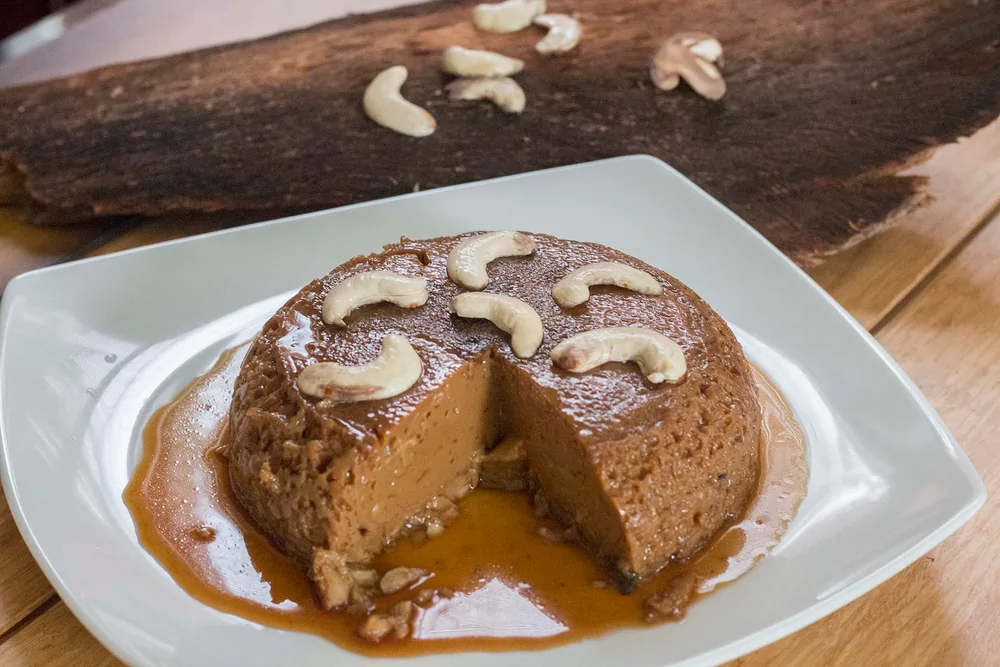
Watalappan
A traditional Sri Lankan dessert, Watalappan is made from coconut milk, jaggery, eggs, and a blend of aromatic spices like cardamom, cinnamon, and nutmeg. This rich, custard-like pudding is typically served during festivals like Deepavali and Christmas, bringing a sweet end to the festive meals.
Kokis
Another traditional treat often found during the Sinhala and Tamil New Year, Kokis is a deep-fried snack made from rice flour, coconut milk, and a touch of sugar. The dough is pressed into intricate shapes using a special mould, resulting in crispy, light, and crunchy pieces that are a delightful addition to any festive spread.
Dates and Samosas
During Ramadan, dates are a staple food, traditionally eaten to break the fast at Iftar. Dates are rich in natural sugars, providing a quick energy boost after hours of fasting. Alongside dates, samosas, which are crispy, deep-fried pastries filled with spiced meat, potatoes, or vegetables, are popular during Iftar. These savoury snacks offer a perfect balance to the sweetness of the dates and are an essential part of the Ramadan feast in Sri Lanka.
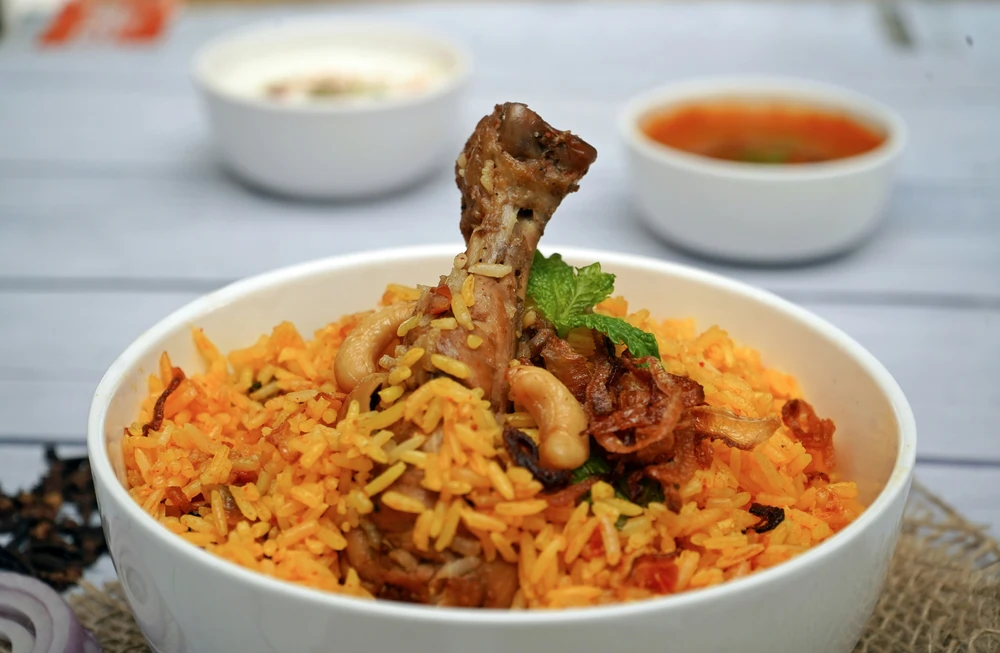
Biryani
A festive favourite during Ramadan and Eid al-Fitr, Biryani is a flavorful rice dish cooked with meat (often chicken, mutton, or beef), aromatic spices, and saffron. This rich, aromatic dish is served during family gatherings and feasts, and it’s considered a special treat for both Iftar and Eid celebrations. The fragrant rice combined with tender meat makes it a beloved choice for festive occasions.
Roast Turkey
During Christmas, Sri Lankans with Christian heritage often serve roast turkey as the centrepiece of the Christmas feast. The turkey is typically marinated in spices, herbs, and sometimes citrus, then roasted to perfection. This dish is commonly served with sides like stuffing, gravy, and roasted vegetables, adding a touch of Western tradition to the festive spread.

Christmas Cake
No Sri Lankan Christmas celebration is complete without the iconic Christmas cake. This rich, fruit-laden cake is made with mixed dried fruits, nuts, and spices, often soaked in rum or wine. The cake is decorated with marzipan and icing, and it is a true symbol of the holiday season. Traditionally, families prepare this cake in advance, allowing the flavours to mature, making it even more delicious for Christmas Day.
These festive dishes reflect the rich and diverse culinary traditions of Sri Lanka, with each festival offering its own unique treats. Food plays an important role in bringing people together to celebrate. These dishes are sure to add a unique flavour to your holiday in Sri Lanka.
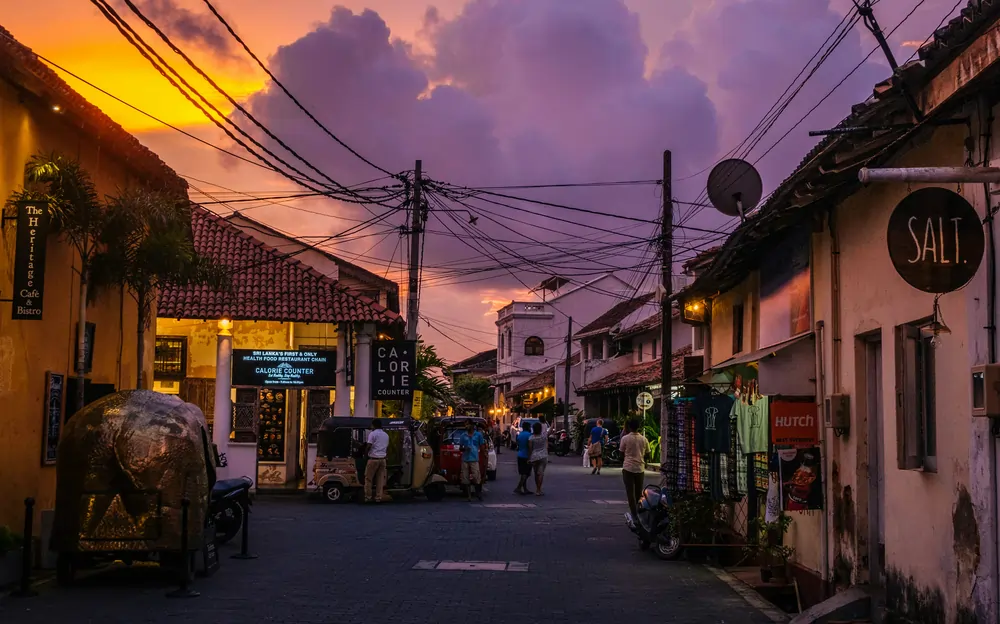
Where to Experience the Best Festive Celebrations in Sri Lanka
While you can find festivals throughout the holiday season in Sri Lanka, there are a few key locations that offer the most spectacular celebrations. Whether you’re in a bustling city or exploring more remote areas, you’re sure to experience the island’s festive spirit at its finest during any holiday in Sri Lanka.
Kandy and Colombo
- Kandy: As the heart of the island’s cultural heritage, Kandy is the place to be for the Kandy Esala Perahera. This grand procession takes place every August, with elaborate rituals, dancing, and the famous elephants leading the way. Kandy also hosts various other cultural events throughout the year, including Vesak celebrations that light up the city.
- Colombo: Sri Lanka’s capital is a perfect blend of modernity and tradition. Colombo’s streets come alive with celebrations during Deepavali and Christmas, making it an exceptional choice for a holiday in Sri Lanka. If you’re looking to experience a festive city vibe, Colombo is the ideal destination, offering not only cultural festivals but also modern attractions, shopping, and entertainment.
Galle and Anuradhapura
- Galle: Situated along the southern coast, Galle is known for its charming colonial architecture and historical significance. While the city may not have as many grand festivals as Colombo or Kandy, it’s a lovely place to experience intimate community celebrations during a holiday in Sri Lanka, especially during Christmas. The Galle Literary Festival also takes place in January, attracting writers, artists, and culture lovers from around the world for a unique cultural holiday in Sri Lanka.
- Anuradhapura: As one of Sri Lanka’s ancient cities, Anuradhapura offers a more serene and spiritual experience, particularly during Vesak. The sacred city, with its ancient temples and historical monuments, becomes even more beautiful during this festival, with oil lamps lighting up the temples and streets.
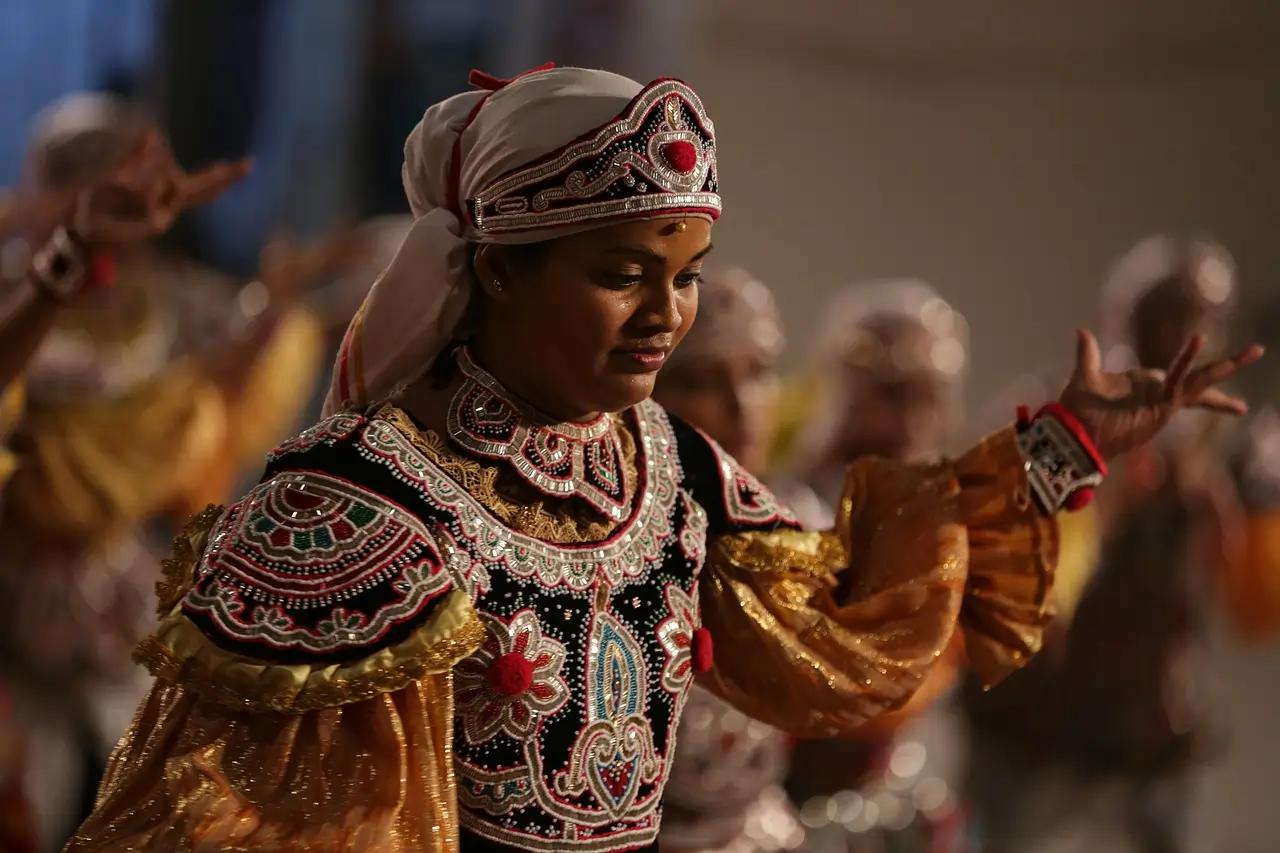
Your Unforgettable Festive Holiday in Sri Lanka
Sri Lanka’s festive calendar offers a once-in-a-lifetime opportunity to immerse yourself in the island’s rich cultural traditions. From the joyous celebrations of Sinhala and Tamil New Year to the grand processions of Kandy Esala Perahera, a holiday in Sri Lanka during festival time will undoubtedly leave you with memories to last a lifetime.
By choosing the right time to visit and understanding the local culture and etiquette, you can ensure that your festive holiday is both enjoyable and respectful. So pack your bags and get ready for a journey filled with colourful parades, delicious food, warm hospitality, and unforgettable moments!
This article is proudly brought to you by Sesatha Travel, an Australian-based travel company offering bespoke tour packages exclusively to Sri Lanka.




